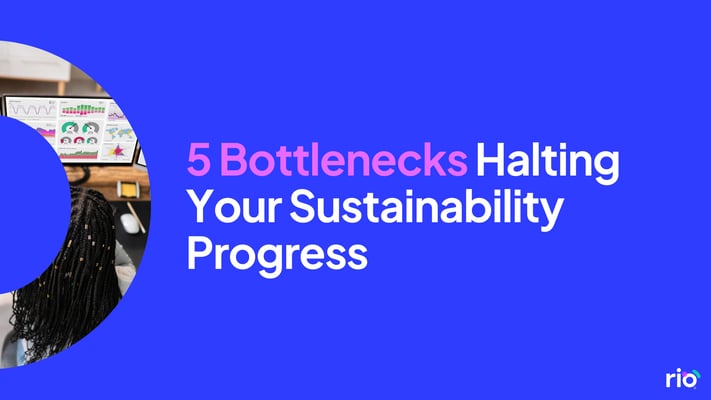Based on an interview with Alex Bexon, LDC (the private equity arm of Lloyds Banking Group)
A New Role for Sustainability in Private Equity
Private equity has always been about one thing: creating value. Traditionally, that meant improving margins, cutting costs, or streamlining operations to maximise returns at exit. But in 2025, another lever has firmly entered the toolkit: sustainability.
As Alex Bexon, who works in the value creation team at LDC, explained:
“We focus on how we can use sustainability as a value creation lever, which fundamentally means how we can use sustainability to drive revenue, reduce risk, increase resilience, or improve a company’s reputation. Ultimately, we maximise the exit valuation of that business.”
This isn’t about “doing the right thing” for its own sake—it’s about recognising that sustainability is directly linked to financial performance and long-term resilience.
Driving Revenue Through Sustainability
Sustainability has become a driver of growth, not just compliance. Consider that 65% of global consumers now say they prefer to buy from sustainable brands (PwC, 2024). For portfolio companies, this translates into new product lines, stronger brand equity, and access to expanding markets.
For example, a food manufacturer that reformulates its packaging to be recyclable or compostable isn’t just reducing waste—it’s unlocking contracts with retailers who now demand sustainability as standard. These choices can open doors to large public sector or corporate buyers who increasingly screen suppliers on ESG performance.
Alex sees this trend every day in LDC’s portfolio: “What used to be a competitive advantage is now just the right to compete.”
Reducing Risk in a Changing Market
Sustainability is also a powerful risk management tool. Regulatory pressure is intensifying—over 600 new ESG regulations were introduced globally in the last three years alone. Companies that fail to adapt face higher compliance costs, reputational damage, and even stranded assets.
By contrast, businesses that embed sustainability into operations mitigate these risks before they become financial liabilities. A manufacturer investing in energy efficiency today shields itself against future carbon taxes and volatile energy markets. A logistics firm electrifying its fleet reduces exposure to rising fuel costs and urban emissions restrictions.
In private equity, where investment horizons are typically 3–7 years, these risks can make or break an exit valuation.
Building Resilience for the Long Term
COVID-19 exposed how fragile supply chains could be. Climate change is doing the same. Companies reliant on fragile global inputs are now looking for more resilient, sustainable supply models.
Research by McKinsey found that businesses with strong ESG performance outperformed peers during the pandemic downturn by up to 10% in shareholder returns. Sustainability makes companies more adaptable, more attractive to investors, and more resilient when the unexpected happens.
Reputational Upside: The Multiplier Effect
Finally, sustainability improves reputation—which has a multiplier effect on value. According to Edelman’s 2024 Trust Barometer, 81% of institutional investors believe companies with strong ESG performance are better long-term investments. For private equity firms, this means portfolio companies with robust sustainability credentials often attract more buyers at exit and command higher multiples.
Alex summed it up well: “We maximise the exit valuation of that business.” In practice, that often means sustainability isn’t a side project—it’s integral to achieving the returns investors expect.
The Investor Mandate: From Optional to Essential
Five years ago, sustainability in private equity was often framed as a “nice-to-have.” In 2025, it’s a non-negotiable. Investors, customers, regulators, and employees all demand it. The firms that view sustainability as compliance will lag. The firms that view it as a value creation lever will lead.
This is especially true in mid-market private equity, where competition for deals is fierce. Demonstrating that sustainability isn’t just built into operations but actively driving revenue, resilience, and reputation is now key to winning deals and maximising exits.
The ROI of Sustainability
Sustainability has moved from the margins to the centre of private equity value creation. It’s no longer about a glossy PDF report or ticking a box—it’s about measurable outcomes that grow revenue, reduce risk, build resilience, and improve reputation.
As Alex’s work at LDC shows, sustainability isn’t just good for the planet—it’s good business.
Want to see how Rio AI helps private equity firms embed sustainability into their portfolio strategies? Book a demo today with our team and unlock sustainability as your next value creation lever.







